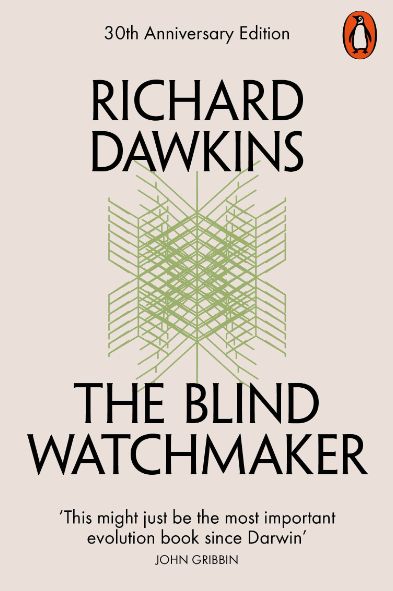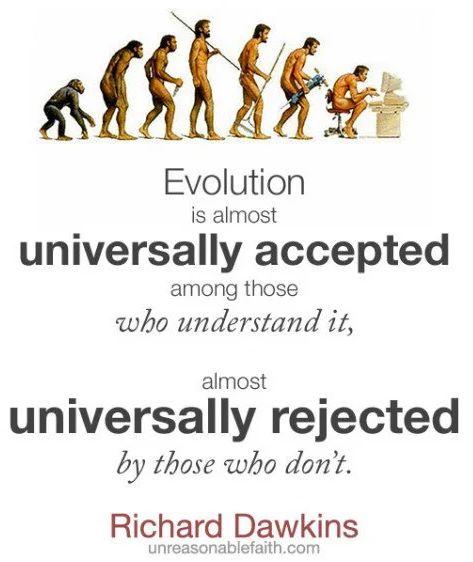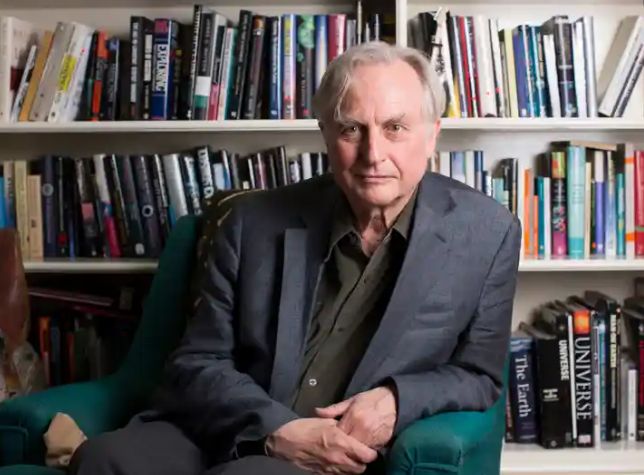
I am a big fan of Richard Dawkins works. I have already read his four books, namely, The Selfish Gene, The God Delusion and Brief Candle in the Dark. And I find them remarkable in the sense that he perfectly chooses his words to prove the clarity of his thoughts.
As a science educator, his ideas are impeccably backed up with obvious logics. Which promotes scientific and logical understanding to the fundamental questions of persistent false belief held in the face of strong contradictory evidence.
The watchmaker analogy
The Blind Watchmaker: Why the Evidence of Evolution Reveals a Universe Without Design is an effort from Richard Dawkins to an 1802 hypothesis held by Theologian William Paley.
Paley made an argument that the complexity of nature suggests an intelligent creator. In simple words, watch exists because it is a product of a creator’s creation.
The idea implies that a higher power or creator intentionally designed and created the universe and all living organisms within it.
Evolution and natural selection results in complex organisms
Dawkins suggests that complexity of living organisms is the result of the natural process of evolution and natural selection. The process is random, without the need for an intelligent creator or a plan for the future.
He further argues that people have misunderstandings or misconceptions about evolution, which eventually is a leading cause of social problems.
Consequently, people are sceptic towards scientific discoveries. For example, some sects do not believe in the efficacy of vaccines.
Evolution is a cumulative process
Evolution is a fundamental concept in biology. People tend not to gravitate towards evidence-based science, rather feel comfort in the idea of a “benevolent and omnipresent creator”.
Complexity of organisms, says he, has risen through evolution. And evolution operates through vast time scales. The time available is several hundred million years.
Evolution is slow, gradual and cumulative process. This is difficult for people to comprehend the magnitude of the changes that occur over such vast time periods.
Nevertheless, empirical evidence such as DNA testing and computer simulations are some of the tools that can help us in providing better understanding.

Small genetic changes lead to complex structures
In the book, Dawkins has presented some computer simulations to illustrate how complex structures and behaviours have emerged from small genetic changes.
These changes start from simple beginnings and grows up by gradual degree to phenomenal heights of complexities. And, the improbabilities that we witness in the living world.
Since, evolution through natural selection is a slow and gradual process. So, he believes that it is the most fundamental and important principles in biology. Which is an essential part to our understanding of the natural world.
Random variation and non-random selection
Humans have a natural tendency to seek patterns and meaning in the world. I agree with Dawkins, that we want to tag some meaning, some “higher purpose in life”. And so, most of us are inclined to see evidence of an intelligent design where none exists.
It is not the first time, like Dawkins there are other evolutionary biologists have advocated, that many complex features of living organisms can be explained through natural selection.
Furthermore, the mechanics of natural selection operates through random variation and non-random selection.
For instance, let’s look at peacock’s tail. The colourful, elaborate tail of male peacocks is not a result of some “divine intervention”. But actually, it is the result of sexual selection.
Similarly, shape of the beaks to the colors of their skin, features of living organisms are formed through the process of natural selection. Hence, there is no need for room for intelligent design.
Once we understand the mechanisms of evolution, we would be in a better position to gain deeper appreciation for the natural world. And the remarkable diversity of life that has evolved over billions of years.
Existence of complex improbable thing is not by chance
Many people, as per Dawkins, do not know what Darwin’s natural selection is. Or what could be an alternative to chance. Therefore, to make things simpler, many people can only imagine is, design. This is a great misunderstanding.
Existence of complex improbable thing by design, or by divine intervention, just doesn’t make any sense.
Time and again, Dawkins puts forward the argument that there is no such thing as “chance”. Even though, individual events may seem random or chance-based.
The overall process of evolution works through natural selection, which favours “survival of the fittest.” It refers not necessarily to physical strength or dominance, but to the ability of an organism to adapt to its environment and produce viable offspring.
Evolutionary importance of natural selection
Dawkins asserts that mutations and other genetic variations may arise randomly. But the mechanics of natural selection acts upon those variations to shape the characteristics of living organisms over time.
The net effect of “random genetic variation” and “natural selection” is what drives the evolution of living organisms.
As traits that give organisms some advantage accumulates and become more prevalent, new adaptations emerge. These novel adaptations, eventually, lead towards the diversity of life that we see around us today.
So, while chance plays a role in the initial appearance of genetic variation, natural selection is the driving force behind the evolution of life on Earth.
Lamarckism versus Darwinism
Towards the end of the book, Dawkins gives reference to Jean-Baptiste Lamarck theory. According to his theory, organisms could pass on traits acquired during their lifetime to their offspring.
The hypothesis is based on the idea that environment can directly influence the traits of an organism. These newly acquired traits can then be passed down to the next generation.
Modern science, however, did not accept the theory of Lamarckism. Since, it did not account for the role of genetics in inheritance.
It was eventually replaced by the theory of evolution by natural selection, which was proposed by Charles Darwin.
Dawkins favours the theory of evolution. He explains that natural selection is the most comprehensive explanation for the diversity of life on Earth.
He also critiques creationist theories of life, which posit that life was created by a supernatural force or deity, and concludes that they do not hold up to scientific scrutiny.

Takeaway
The theory of evolution is supported by a vast amount of scientific evidence from a variety of fields, including biology, genetics, paleontology, and more.
While there may be counterarguments presented by some individuals. However, the overwhelming consensus among the scientific community is that evolution is a valid and well-supported scientific theory.
The Blind Watchmaker is a classic non fiction work, and till date it gives one of the most critical and open-minded perspective, towards the origins of living beings.
I highly recommend this book because to understand the empirical data is super important to draw final conclusions. And greater focus on science education is a must to promote scientific literacy in society.



